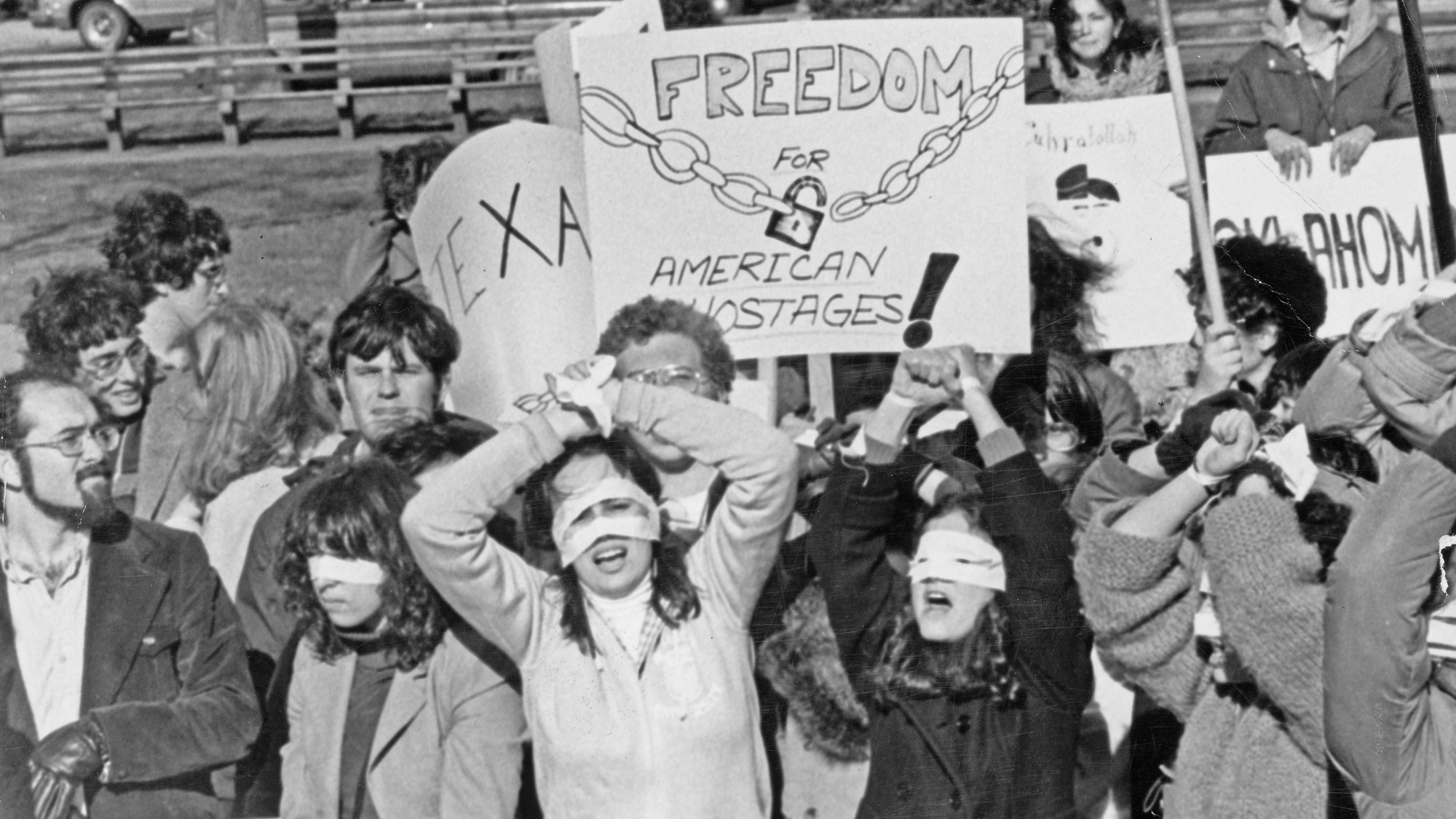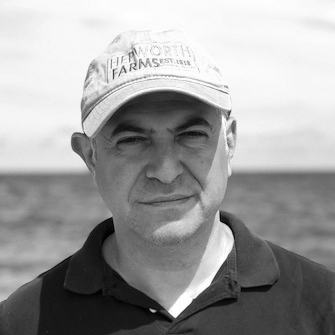Hostage taking didn't start on Oct. 7
It was always at the center of Iran's project to topple American power


A free daily email with the biggest news stories of the day – and the best features from TheWeek.com
You are now subscribed
Your newsletter sign-up was successful
The Iran hostage crisis is my first memory of international politics. When the U.S. Embassy was seized in Tehran in 1979, I was in third grade; I would probably not have really been aware of it until it had stretched on for months. My parents watched news of it on Nightline, after my bedtime. The Iran hostage crisis gets fewer mentions now than it seems to merit. Maybe that's because Sept. 11 was the greater national trauma, but the hostage crisis was the greater national humiliation.
For more than a year, Iranian revolutionaries kept 52 Americans captive and the U.S. could do nothing. So, it's a memory that the country flinches from. In retrospect, though, that crisis may have reshaped the world even more than Sept. 11. It was the seizure of the U.S. Embassy that set Iran and its brand of religious expansion on a collision course with the United States. The project of toppling American power and replacing it with Islamic fundamentalism continues today.
Seen in this light, it's not really a coincidence that hostages are at the center of the Oct. 7 massacre and the war in Gaza and Lebanon. Hamas and Hezbollah are proxies for Iran, devoted far less to any individual interests than to prosecuting the vision of world revolution that has animated the Iranian regime from the start. Like other messianic ideologies, that vision has gathered both junior allies who see political advantage and fellow travelers who see salvation.
The Week
Escape your echo chamber. Get the facts behind the news, plus analysis from multiple perspectives.

Sign up for The Week's Free Newsletters
From our morning news briefing to a weekly Good News Newsletter, get the best of The Week delivered directly to your inbox.
From our morning news briefing to a weekly Good News Newsletter, get the best of The Week delivered directly to your inbox.
At home, Iran's government is out of touch with its populace and stumbling under the weight of its thorough corruption, yet among backers flooding the streets and campuses of the West, Iran's banner has never flown higher.
And so, a year after Oct. 7, the Middle East is on the verge of an even greater inferno, as the campaign that the Iranian revolutionaries initiated 45 years ago takes its course. It seems almost miraculous now that America's post-WWII conflict with the Soviet Union — played out over just about the same length of time — never led to a more direct confrontation. I fear that this time we will not be so lucky.
This is the editor's letter in the current issue of The Week magazine.
A free daily email with the biggest news stories of the day – and the best features from TheWeek.com
Mark Gimein is a managing editor at the print edition of The Week. His work on business and culture has appeared in Bloomberg, The New Yorker, The New York Times and other outlets. A Russian immigrant, and has lived in the United States since the age of five, and now lives in Brooklyn with his wife and son.
-
 Political cartoons for February 19
Political cartoons for February 19Cartoons Thursday’s political cartoons include a suspicious package, a piece of the cake, and more
-
 The Gallivant: style and charm steps from Camber Sands
The Gallivant: style and charm steps from Camber SandsThe Week Recommends Nestled behind the dunes, this luxury hotel is a great place to hunker down and get cosy
-
 The President’s Cake: ‘sweet tragedy’ about a little girl on a baking mission in Iraq
The President’s Cake: ‘sweet tragedy’ about a little girl on a baking mission in IraqThe Week Recommends Charming debut from Hasan Hadi is filled with ‘vivid characters’
-
 Witkoff and Kushner tackle Ukraine, Iran in Geneva
Witkoff and Kushner tackle Ukraine, Iran in GenevaSpeed Read Steve Witkoff and Jared Kushner held negotiations aimed at securing a nuclear deal with Iran and an end to Russia’s war in Ukraine
-
 ‘The forces he united still shape the Democratic Party’
‘The forces he united still shape the Democratic Party’Instant Opinion Opinion, comment and editorials of the day
-
 ‘Those rights don’t exist to protect criminals’
‘Those rights don’t exist to protect criminals’Instant Opinion Opinion, comment and editorials of the day
-
 ‘The mark’s significance is psychological, if that’
‘The mark’s significance is psychological, if that’Instant Opinion Opinion, comment and editorials of the day
-
 ‘The West needs people’
‘The West needs people’Instant Opinion Opinion, comment and editorials of the day
-
 ‘The censorious effect is the same, even if deployed covertly’
‘The censorious effect is the same, even if deployed covertly’Instant Opinion Opinion, comment and editorials of the day
-
 Vietnam’s ‘balancing act’ with the US, China and Europe
Vietnam’s ‘balancing act’ with the US, China and EuropeIn the Spotlight Despite decades of ‘steadily improving relations’, Hanoi is still ‘deeply suspicious’ of the US as it tries to ‘diversify’ its options
-
 ‘My donation felt like a rejection of the day’s politics’
‘My donation felt like a rejection of the day’s politics’Instant Opinion Opinion, comment and editorials of the day
